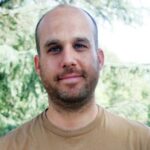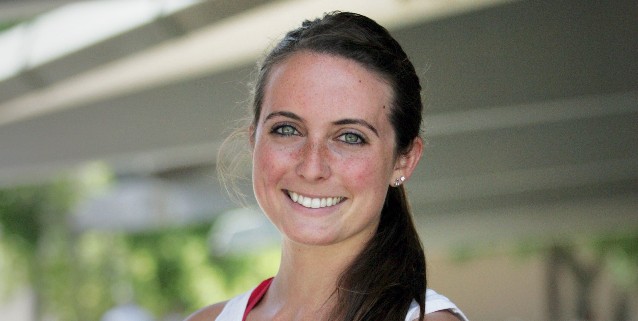When SR #20 was presented to senate, second-year political science and international relations double major Jessica Reiter sat among her Jewish and Israeli peers, proudly representing herself as anti-divestment. Reiter is a German Irish Catholic student.
Although the majority of the anti-divestment side of the conflict identified as either Jewish or Israeli, Reiter was one of the many students with strong opinions despite not having a cultural or religious connection to the matter.
“The first time I saw divestment was last year, when I just joined [the External Affairs Commission] and I had never sat in any meetings before,” Reiter said. “I was really excited to see both sides of the story. But, when I saw the actual resolution, and how it was singling out one side of the campus, I did not agree.”
Growing up in a U.S. military family, Reiter said her familiarity with the Israeli-Palestinian conflict has been more than the average student.
“Israel would come up a lot at home, so it was something we talked about casually and I was always very familiar with Israel,” Reiter said. “It was always very apparent to me that the relationship between America and Israel was very balanced. I see the resolution as attacking Israel and America.”
Reiter said being a non-Jewish or Israeli student on the anti-divestment side has been a welcoming experience.
“People often ask me why I care, why I want to be involved like this. To me, it’s a no-brainer, as an American, as someone who respects my campus community,” Reiter said. “It’s directly attacking my beliefs and hurting my friends. As a student, I can’t stand here and watch my peers be attacked.”
Although Reiter believes students have the right to bring any resolution they want to bring to the table, she said the bill is difficult to discuss in a civic government setting.
“I think its really unfair. If you are the average human being, you don’t know about the topic,” Reiter said. “I do believe that this conversation needs to happen. But, in civic government and parliamentary procedure? It’s not the place. It’s not the proper form for it.”
Reiter attests to the idea that the bill creates a division on campus, regardless of ethnicity or religion, and this division affects all students, not just Israelis and Palestinians.
“I hate to see something that further divides our campus. I don’t want people to think that anyone on the anti-divest side is against helping humans that need it,” Reiter said. “We are just against targeting a huge community on campus. We are not malicious, horrible people.”
Collaboration within multiple communities to reach a happy middle place is necessary for change, according to Reiter.
“If we collaborate, it would be huge and so monumental,” Reiter said. “If we can make a single resolution that can benefit many communities, then UC Davis will make big strides in a positive direction.”
RITIKA IYER can be reached at features@theaggie.org.
Photo by Abby Alcala.









